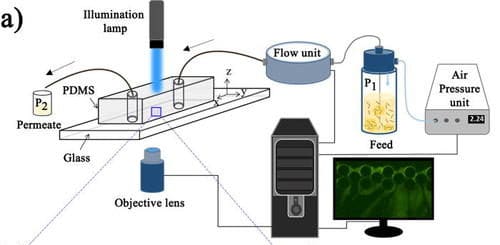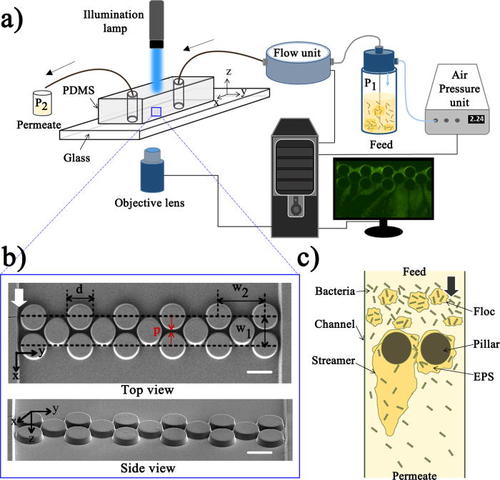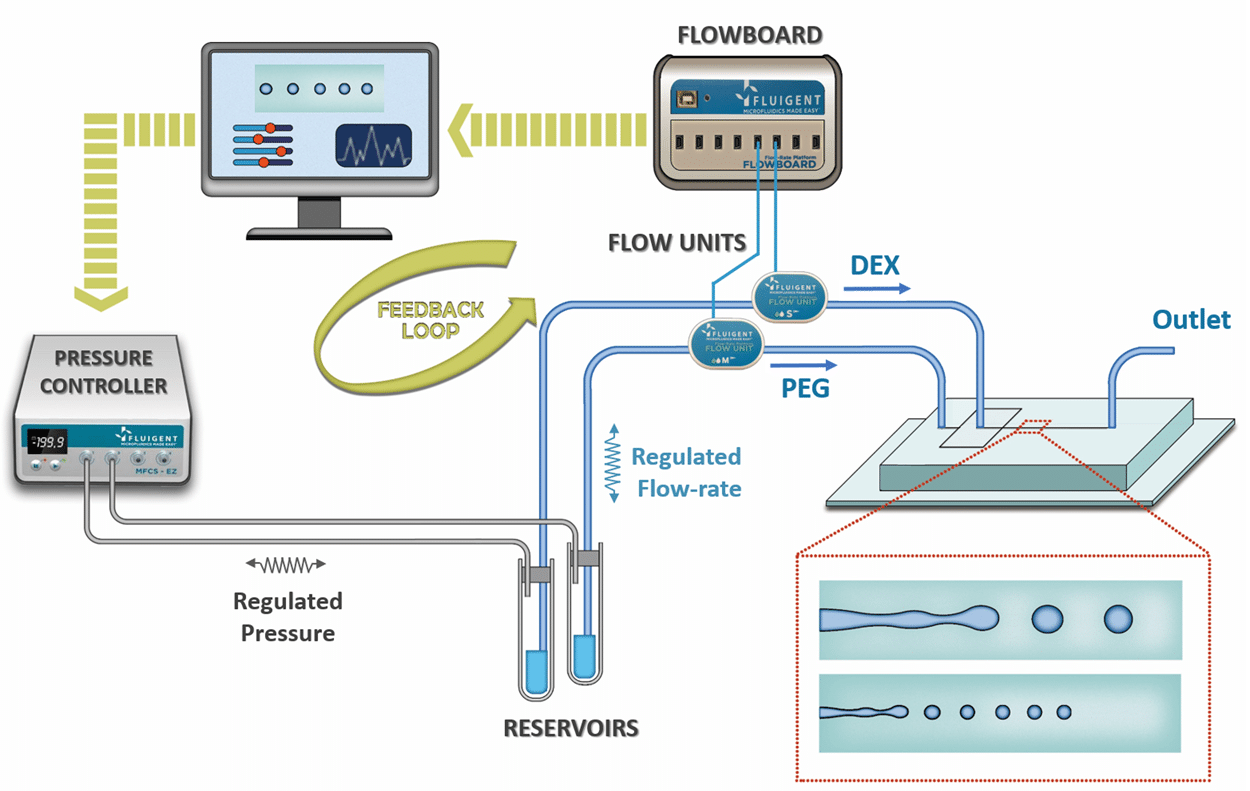Microbead-based microfluidics (droplet-based microfluidic using specific gel as dispersed phase) is a powerful technic which…

Customer paper on biofouling of microfluidic filtration systems
 In this article Ishita Biswas’s team investigated the impact of bacterial streamers on biofouling of microfluidic filtration systems.
In this article Ishita Biswas’s team investigated the impact of bacterial streamers on biofouling of microfluidic filtration systems.
Abstract: We investigate the effect of biofouling in a microfluidic filtration system. The microfluidic platform consists of cylindrical microposts with a pore-spacing of 2 µm, which act as the filtration section of the device. One of our key findings is that there exists a critical pressure difference above which pronounced streamer formation is observed, which eventually leads to rapid clogging of the device with an accompanying exponential decrease in permeate flow. Moreover, when streamers do form, de-clogging of pores also occurs intermittently, which leads to small time scale fluctuations [O(101 s)] superimposed upon the large time scale [O(102 min)] clogging of the system. These de-clogging phenomena lead to a sharp increase in water permeation through the microfluidic filtration device but rates the water quality as biomass debris is transported in the permeate. Streamer-based clogging shares similarities with various fouling mechanisms typically associated with membranes. Finally, we also show that the pH of the feed strongly affects biofouling of the microfluidic filtration system.Published by AIP Publishing.
Biomicrofluidics 12, 044116 2018)
<br>



